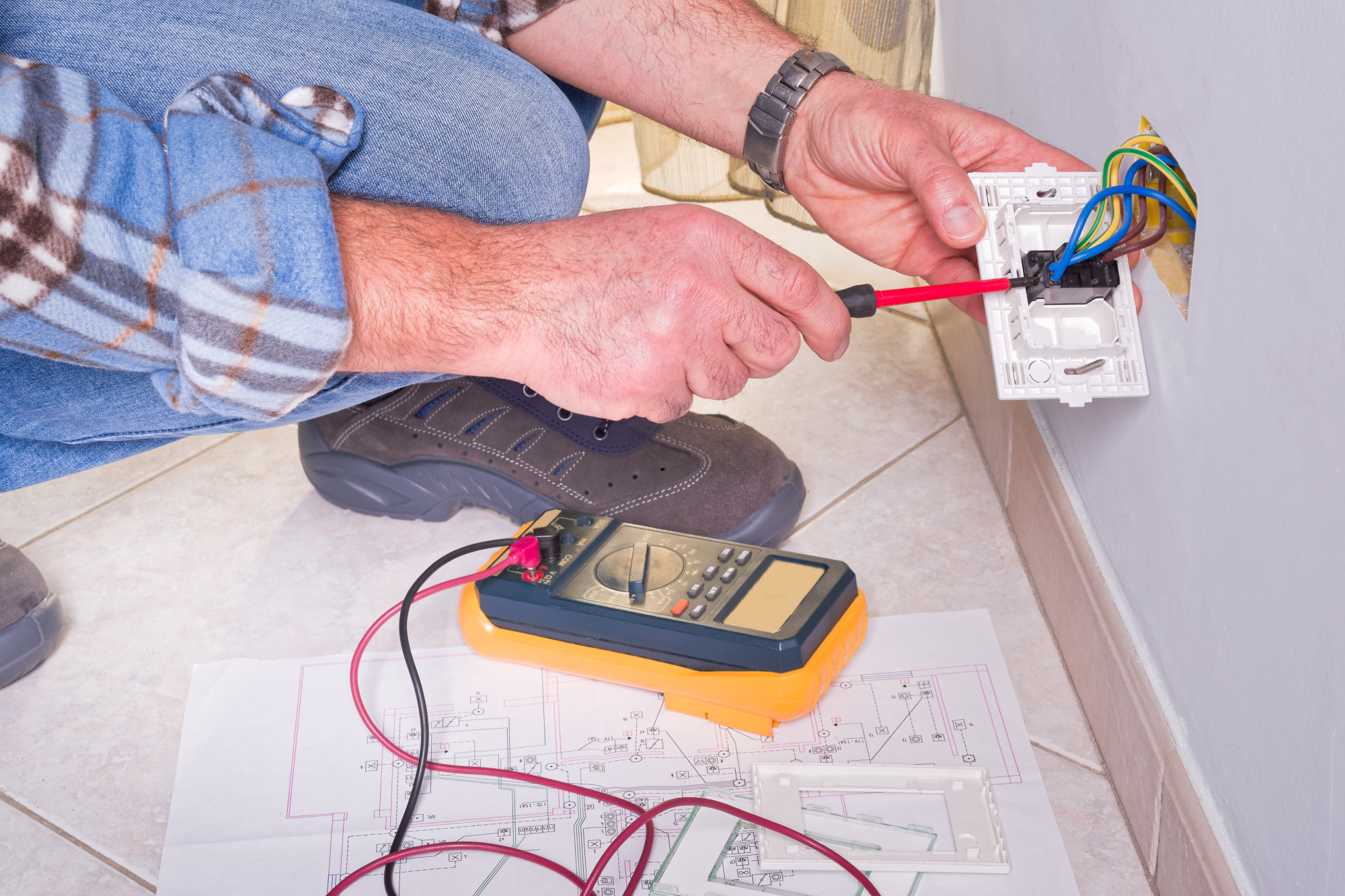Electricity powers our homes, keeping us connected, comfortable, and safe. However, to ensure our electrical systems work reliably and safely, regular maintenance is essential.
Whether you’re a novice or an experienced homeowner, this guide will equip you with valuable tips. We’ll provide you with step-by-step instructions and safety precautions.
From changing light bulbs to understanding circuit breakers and when to call a professional, we’ll cover it all. Get ready to master the art of home electrical maintenance and enjoy peace of mind knowing your home is powered efficiently and securely.
Contents
Electrical Safety Basics
Before we dive into the maintenance part, it’s crucial to understand some electrical safety basics. Here are a few things you need to remember:
Never Touch Electrical Outlets With Wet Hands
Water and electricity don’t mix, so it’s essential to keep your hands dry when dealing with electrical outlets or switches. Wet hands can conduct electricity and increase the risk of electric shock. So, always make sure your hands are dry before handling any electrical components.
Avoid Using Electrical Appliances Near Water Sources
It’s important to remember that water is a conductor of electricity. So, using electrical appliances near water sources can be extremely dangerous.
To prevent the risk of electrical shock or electrocution, keep electrical devices away from water sources. These include sinks, bathtubs, swimming pools, or any other wet areas.
Don’t Overload Outlets
Overloading outlets with too many devices can lead to overheating. It can also cause electrical fires or tripped circuit breakers which can put your life in danger.
To ensure safety, distribute your electrical devices across multiple outlets. Consider using power strips with built-in surge protection to accommodate multiple devices safely.
Don’t Use a Frayed or Damaged Cord
Using frayed or damaged cords can pose a serious electrical shock or fire risk. If you notice any frayed or damaged cords, it’s important to stop their use immediately. Replace them with new cords to maintain a safe electrical environment in your home.
Dealing With Power Outages
Power outages are a common occurrence, and knowing what to do when the lights go out is important. First, determine if the power outage is specific to your home or if it affects the entire neighborhood. If needed, reach out to your electricity provider for assistance.
Next, rely on flashlights or battery-powered lanterns for lighting. Avoid using candles, as they pose a fire hazard. To preserve the temperature inside your refrigerator and freezer, keep them closed as much as possible during the outage.
Lastly, unplug sensitive electronics to protect them from power surges when the electricity is restored. This precaution helps prevent potential damage to your devices.
Understanding Circuit Breakers
Circuit breakers are essential components for safeguarding your home against electrical overloads. Here’s a simplified explanation of how they work.
Think of circuit breakers as automatic switches that play a crucial role in your electrical system. When a circuit becomes overloaded or experiences a short circuit, the breaker takes action.
In the event of an overload, the breaker trips, effectively cutting off the flow of electricity. This action helps prevent overheating and mitigates the risk of potential fires.
Regular Inspection
Performing regular inspections is essential to ensure the safety of your electrical system. Here’s what you need to do:
Check All Electrical Cords and Outlets for Any Signs of Damage or Wear
Regularly inspecting electrical cords and outlets for signs of damage or wear is essential for maintaining a safe electrical system. Look for any frayed wires, exposed conductors, or loose connections, and if you spot any issues, it’s important to address them promptly to prevent potential hazards.
Test Your Smoke Detectors and Carbon Monoxide Alarms
Testing your smoke detectors and carbon monoxide alarms regularly is crucial for the safety of your home. Press the test button on each device to ensure they emit a loud, audible sound. This will indicate that they are functioning properly.
If any alarms fail to sound or show signs of malfunction, replace the batteries or the entire unit immediately. This will help maintain effective fire and carbon monoxide detection.
Look Out for Flickering Lights or Any Unusual Buzzing Sounds
Be observant of any flickering lights, sparks, or unusual buzzing sounds coming from your electrical system. These can be signs of underlying issues such as loose connections or faulty wiring.
It’s better to address such anomalies promptly. Doing so will ensure the ongoing safety and proper functioning of your home’s electrical system.
Examine Your Circuit Breaker Panel
Take a moment to inspect your circuit breaker panel periodically to check if any breakers have tripped. Tripped breakers can be identified by switches that have moved to the “off” position or are not aligned with the rest.
If you notice any tripped breakers, safely reset them. Do this by flipping them back to the “on” position. However, if the same breaker continues to trip frequently, it’s advisable to consult a professional electrician to investigate and resolve the underlying cause.
Changing the Light Bulbs
One of the simplest maintenance tasks you can perform is changing light bulbs. First, ensure that the power to the light fixture is turned off to avoid any accidents.
Next, carefully unscrew the old bulb by turning it counterclockwise. Once the old bulb is removed, take the new bulb. Screw it in by turning it clockwise until it feels snug.
Finally, turn on the power and test the new bulb to ensure it illuminates properly. By following these easy steps, you’ll have successfully replaced a light bulb in no time.
Calling a Professional
While you can handle some electrical tasks yourself, it’s important to call a professional electrician in certain situations. These include frequent circuit breaker trips or power surges and installing new outlets or light fixtures.
Reach out to an electrician if you or view this residential electrician if you notice exposed wiring or electrical sparks to prioritize safety. Professionals can help in assessing and repairing electrical systems. They can ensure safe maintenance and repairs.
The Importance of Regular Home Electrical Maintenance
This guide provides a great introduction to home electrical maintenance. By following the tips and guidelines we’ve shared, you can keep your electrical system safe and in good working order.
Remember to prioritize safety, perform regular electrical system inspections, and reach out to professionals when needed. With these steps, you’ll have peace of mind knowing that your home’s electrical system is well-maintained.
Looking for more helpful tips? Browse the rest of our site for more insights!



